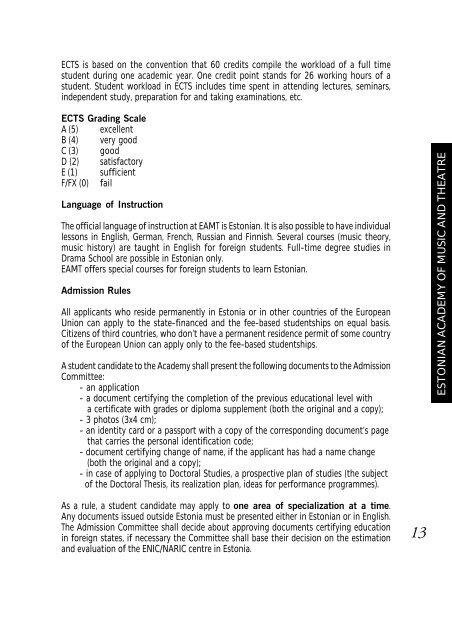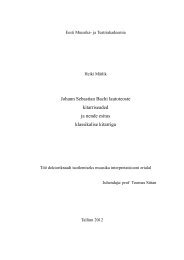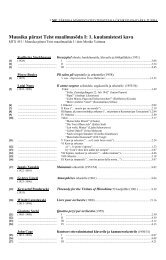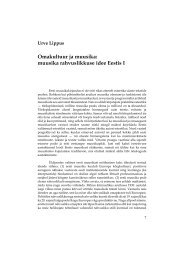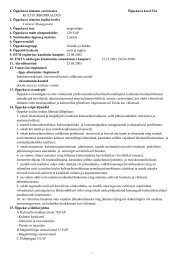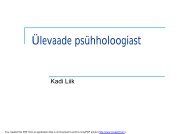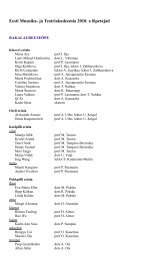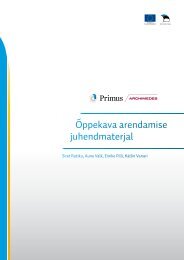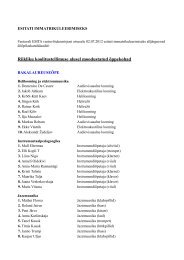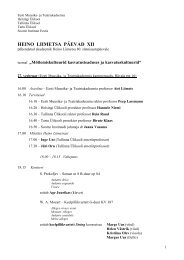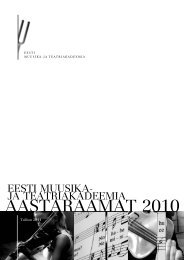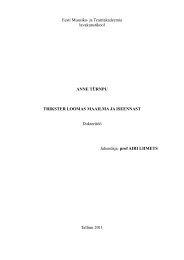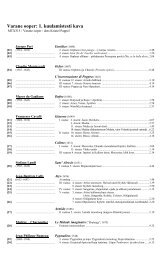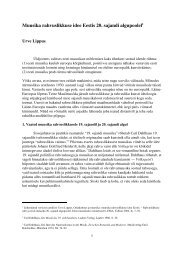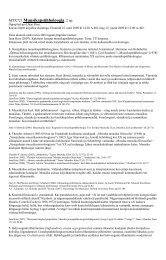You also want an ePaper? Increase the reach of your titles
YUMPU automatically turns print PDFs into web optimized ePapers that Google loves.
ECTS is based on the convention that 60 credits compile the workload of a full time<br />
student during one academic year. One credit point stands for 26 working hours of a<br />
student. Student workload in ECTS includes time spent in attending lectures, seminars,<br />
independent study, preparation for and taking examinations, etc.<br />
ECTS Grading Scale<br />
A (5) excellent<br />
B (4) very good<br />
C (3) good<br />
D (2) satisfactory<br />
E (1) sufficient<br />
F/FX (0) fail<br />
Language of Instruction<br />
The official language of instruction at EAMT is Estonian. It is also possible to have individual<br />
lessons in English, German, French, Russian and Finnish. Several courses (music theory,<br />
music history) are taught in English for foreign students. Full-time degree studies in<br />
Drama School are possible in Estonian only.<br />
EAMT offers special courses for foreign students to learn Estonian.<br />
Admission Rules<br />
All applicants who reside permanently in Estonia or in other countries of the European<br />
Union can apply to the state-financed and the fee-based studentships on equal basis.<br />
Citizens of third countries, who don’t have a permanent residence permit of some country<br />
of the European Union can apply only to the fee-based studentships.<br />
A student candidate to the Academy shall present the following documents to the Admission<br />
Committee:<br />
- an application<br />
- a document certifying the completion of the previous educational level with<br />
a certificate with grades or diploma supplement (both the original and a copy);<br />
- 3 photos (3x4 cm);<br />
- an identity card or a passport with a copy of the corresponding document’s page<br />
that carries the personal identification code;<br />
- document certifying change of name, if the applicant has had a name change<br />
(both the original and a copy);<br />
- in case of applying to Doctoral Studies, a prospective plan of studies (the subject<br />
of the Doctoral Thesis, its realization plan, ideas for performance programmes).<br />
<strong>ESTONIAN</strong> <strong>ACADEMY</strong> <strong>OF</strong> <strong>MUSIC</strong> <strong>AND</strong> <strong>THEATRE</strong><br />
As a rule, a student candidate may apply to one area of specialization at a time.<br />
Any documents issued outside Estonia must be presented either in Estonian or in English.<br />
The Admission Committee shall decide about approving documents certifying education<br />
in foreign states, if necessary the Committee shall base their decision on the estimation<br />
and evaluation of the ENIC/NARIC centre in Estonia.<br />
13


